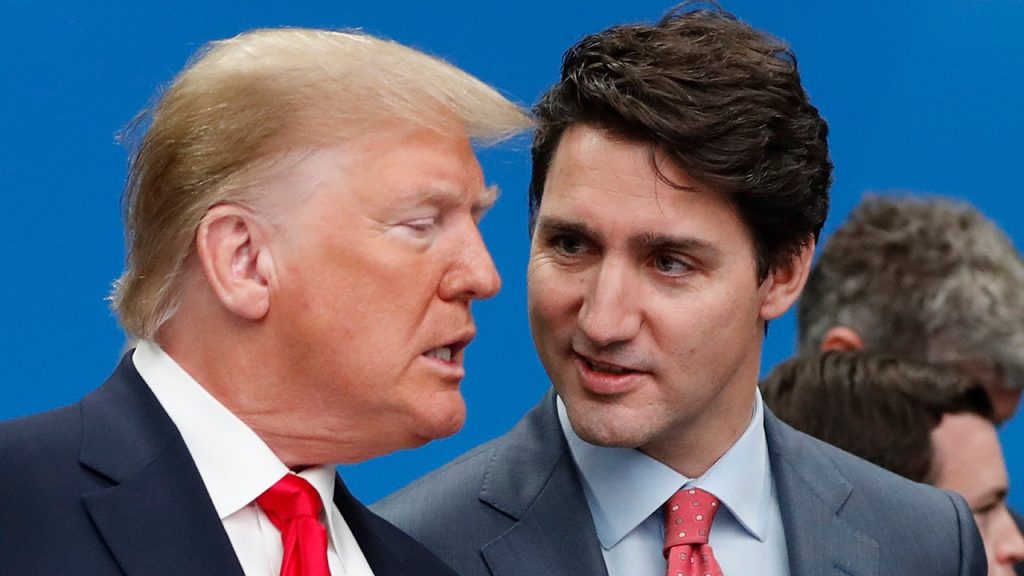The unexpected resignation of Canadian Prime Minister Justin Trudeau marks a significant turning point in Canadian politics, precipitated by a confluence of internal and external pressures. Trudeau, who held the office for nearly a decade, faced mounting criticism over his handling of economic challenges, including the soaring cost of living and rising inflation, leading to a precipitous decline in his approval ratings. This internal pressure was further exacerbated by the looming threat of a trade war with the incoming Trump administration, a challenge that exposed divisions within Trudeau’s own Liberal Party and ultimately led to the dramatic resignation of his Finance Minister, Chrystia Freeland. The combined weight of these factors forced Trudeau to confront the increasing likelihood of either a parliamentary vote of no confidence or a grueling battle to retain his position until the 2025 elections, both scenarios presenting bleak prospects for his political survival. His decision to resign allows the Liberal Party to appoint an interim leader and offers them a chance to regain public support before the next election.
The catalyst for Trudeau’s downfall can be traced to the escalating tensions with the incoming Trump administration. President-elect Trump’s threat to impose a 25% tariff on Canadian imports became a focal point of contention, highlighting the vulnerability of the Canadian economy and exposing cracks in Trudeau’s leadership. Freeland, a key figure in Trudeau’s cabinet and a pivotal player in negotiating the U.S.-Mexico-Canada trade agreement, issued a scathing resignation letter that publicly criticized Trudeau’s response to Trump’s protectionist stance. Her letter not only condemned the potential economic fallout of Trump’s proposed tariffs but also implicitly questioned Trudeau’s ability to navigate the complex geopolitical landscape and effectively defend Canadian interests. This public rebuke from a close ally delivered a significant blow to Trudeau’s authority and served as a rallying point for those within the Liberal Party who were already growing disillusioned with his leadership.
Freeland’s resignation letter resonated deeply within the Canadian political landscape, exposing a growing anxiety over the potential economic consequences of Trump’s policies. Her warning that Canada’s response to the impending trade war would have generational consequences underscored the gravity of the situation and amplified calls for a more assertive stance against the incoming US administration. Freeland’s departure not only signaled a loss of confidence in Trudeau’s leadership within his own party but also fueled public debate about the best way to navigate the increasingly fraught relationship with the United States. Her criticism of Trudeau’s handling of the situation created a sense of urgency and heightened the pressure on the Prime Minister to demonstrate decisive action.
The departure of Freeland, coupled with the growing chorus of dissent from within his own party and the opposition, left Trudeau politically isolated and vulnerable. At least seven Liberal Members of Parliament, along with opposition leaders, openly called for his resignation, further eroding his authority and diminishing his prospects for political survival. Faced with the prospect of a no-confidence vote or a protracted fight to retain his position until the next election, Trudeau chose to step down, a decision that allows the Liberal Party to attempt a reset and offers a chance to regain public trust before the upcoming election.
Trudeau’s resignation opens a new chapter in Canadian politics, creating uncertainty about the future direction of the Liberal Party and the country as a whole. The selection of an interim prime minister will be a critical first step in determining the party’s strategy for the upcoming election. Dominic LeBlanc, Trudeau’s close friend and newly appointed finance minister, is considered a potential contender for the interim leadership role, although other candidates may emerge as the party navigates this period of transition. The next leader will face the daunting task of unifying the party, addressing the economic anxieties that fueled Trudeau’s decline, and charting a course for Canada’s relationship with the United States under the Trump administration.
The long-term implications of Trudeau’s resignation remain to be seen. The next election will be a crucial test for the Liberal Party, offering an opportunity for a fresh start and a chance to regain public support. The party’s ability to effectively address the economic challenges facing the country and navigate the complex relationship with the United States will be key factors in determining its future success. The political landscape has been significantly altered by Trudeau’s departure, and the coming months will be crucial in shaping the future of Canadian politics. The response from the Trump administration to Trudeau’s resignation and the subsequent actions of the interim Canadian government will be critical in determining the future trajectory of the US-Canada relationship, particularly in the context of the threatened trade tariffs.

